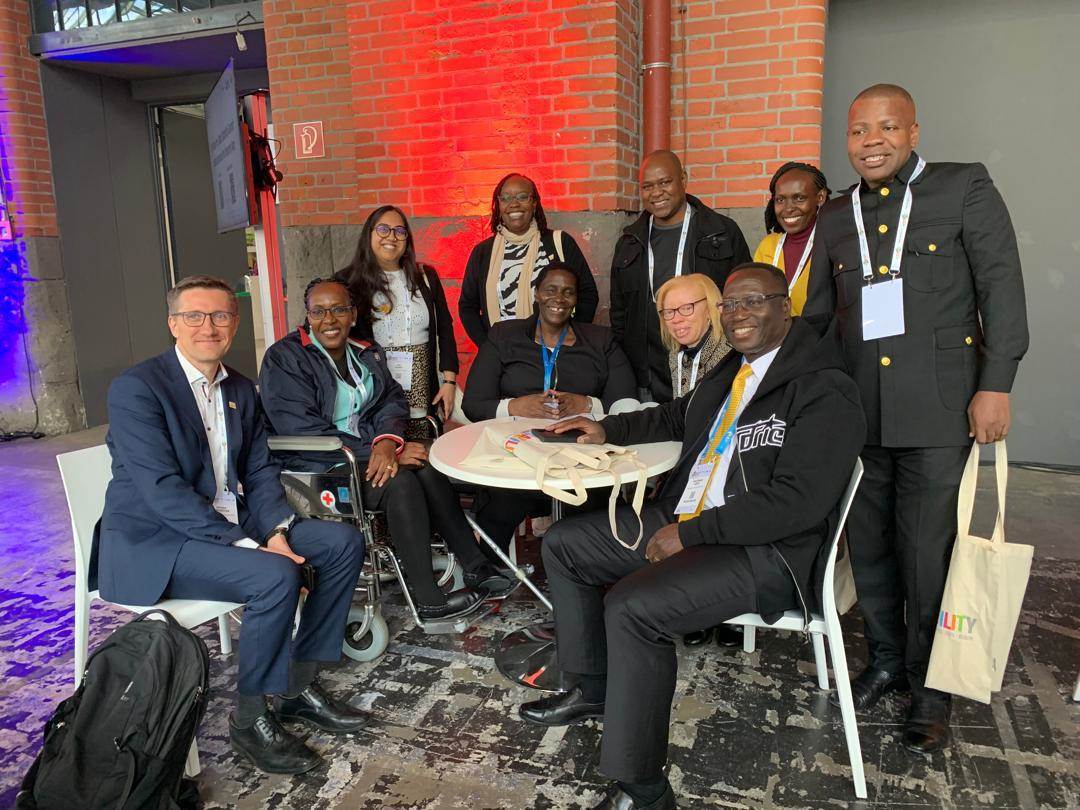
Zimbabwe: ‘A Departure from the Commonwealth’
This CPA blog was published in April 2025 and was written by Samuel Sallybanks during his internship with the CPA Headquarters Secretariat between January and April 2025. It is part of a series on democratic progression in the Commonwealth, which you can find here.
The views expressed in this blog are provided by the author and do not reflect the view of the wider CPA membership.
Zimbabwe was suspended from the Commonwealth in 2002 and withdrew in 2003. It became only the third member nation to voluntarily withdraw from the Commonwealth, joining South Africa (1961) and Pakistan (1971).[i]
Prior to its withdrawal, Zimbabwe participated in several CPA and Commonwealth activities.
In January 1990, Harare hosted the 10th Conference of Commonwealth Speakers and Presiding Officers (CSPOC) in which President Robert Mugabe spoke of the importance of Parliaments in democratic systems.
Further topics included: The Role of the Speaker in the Legislature, Parliamentary privileges, and why African Commonwealth countries opt for Executive Presidencies.[ii]
A year on, the Commonwealth Heads of Government Meeting (CHOGM) met in Harare and established the significant ‘Harare Declaration’, a landmark accord outlining the Commonwealth's core principles and values, including democracy, the rule of law, and human rights.
Whilst reaffirming the principles enshrined twenty years previously in Singapore, the Harare meeting also addressed contemporary issues relating to the final phases of decolonisation and the negotiated end to Apartheid.[iii]
Continued participation from Zimbabwe with the CPA included the CPA ‘Post-Election Seminar’ held in Bulawayo in November 1995.[iv] With over 90 MPs present, Hon. S. V. Muzenda, Vice-President of Zimbabwe, discussed how Parliamentarians have more of a role than simply being a legislator. Further discussions included: the role of MPs, Parliamentary Committees, the Commonwealth and the CPA.

Above: A commemorative stamp issued in Zimbabwe for the 36th Commonwealth Parliamentary Conference in 1990 (CPA Archival Photograph).
At the turn of the century, however, Zimbabwe’s willingness to cooperate with the Harare Declaration abruptly ended.
In 2000, CPA Members participated in the Commonwealth Election Observation Team in cooperation with the Commonwealth Secretariat upon hearing of several issues with the Parliamentary elections.
Two years later, after widespread reports of voter intimidation and violence during the Presidential Election, the Commonwealth suspended Zimbabwe’s membership.[v]
Following this, the CPA’s Executive Committee placed Zimbabwe into abeyance for one year.[vi] The decision to keep Zimbabwe in abeyance was agreed at Sarawak in Malaysia, during the CPA Executive Committee’s mid-year meeting in 2002.[vii]
Tensions flared again at the 2003 Commonwealth Heads of Government Meeting (CHOGM) in Abuja, Nigeria. The twin decision not to remove its suspension and the re-election of new Commonwealth Secretary-General Don McKinnon led to President Robert Mugabe withdrawing Zimbabwe from the Commonwealth.[viii]
In a speech to the UK House of Commons in December 2003, the UK Prime Minister, Rt Hon. Tony Blair, criticised Mugabe’s leadership and denounced his claim that the Commonwealth was a white conspiracy against Zimbabwe. Further, Blair declared Mugabe’s withdrawal a victory for Commonwealth values whilst also extending a hand to the future suggesting there would always be a place in the Commonwealth for a democratic Zimbabwe.[ix]
This offer has been discussed as recently as 2018, but re-admission looks unlikely given human rights violations.[x]
In contrast to other nations suspended from the Commonwealth (for example Fiji, Pakistan and Nigeria), Zimbabwe is representative of a decline in democratic progression.
Having previously participated in CPA and Commonwealth events before 2000, the Zimbabwean leadership changed course to abandon the principles of the Commonwealth, resulting in its suspension.
Unwilling to adapt, President Mugabe then withdrew Zimbabwe from the Commonwealth family of nations. There has been much debate since then about the readmission of Zimbabwe to the Commonwealth and its willingness to demonstrate it has reestablished democratic principles.
References:
[i] "Editorial: CHOGM 2003, Abuja, Nigeria". The Round Table. 93 (373): 3–6. January 2004. doi:10.1080/0035853042000188139.
[ii] CPA Annual Report, 1990
[iii] Harare Commonwealth Declaration, 1991
[iv] CPA Annual Report, 1995
[v] BBC NEWS | World | Africa | Commonwealth suspends Zimbabwe)
[vi] CPA Annual Report, 2002
[vii] CPA Annual Report, 2003
[viii] Editorial: CHOGM 2003, Abuja, Nigeria. (2004). The Round Table, 93 (373), 3–6. https://doi.org/10.1080/0035853042000188139
[ix] Commonwealth Heads of Government Meeting (Hansard, 9 December 2003)
[x] The Commonwealth: Zimbabwe’s return? - House of Lords Library



